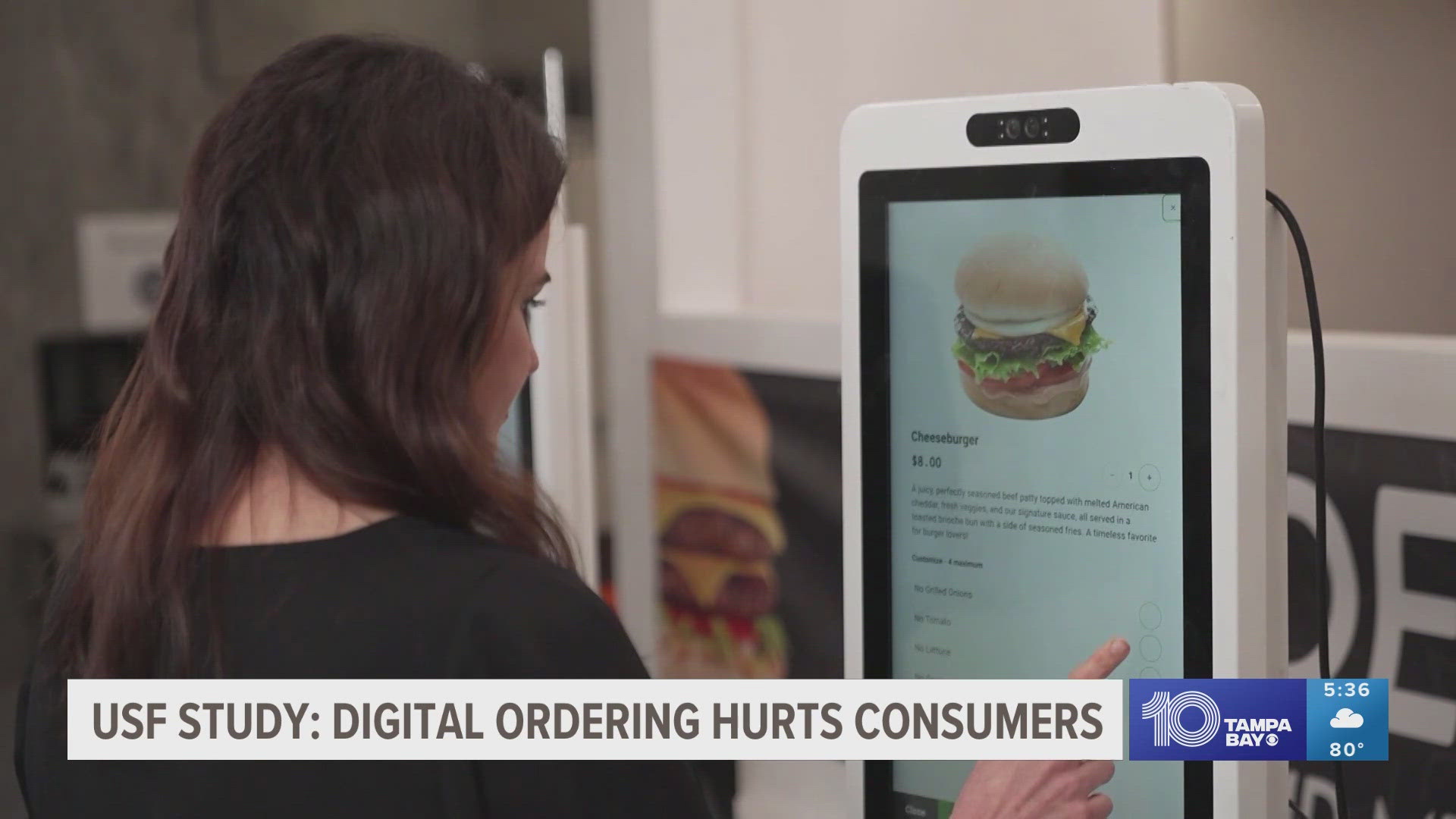TAMPA, Fla. — A new study from the University of South Florida said digital ordering platforms are significantly influencing consumer behavior, leading to more indulgent food choices and increased spending.
The study compared the cognitive effects of ordering food from a digital screen to traditional methods, such as printed menus, according to a news release from USF.
Co-authored by USF marketing professor Dipayan Biswas, the six-restaurant study saw students examine the effect of ordering off a digital menu as opposed to a physical one.
The result? USF said 61% of digital orders, including those made for delivery, were unhealthy.
“Digital ordering modes foster a more automatic decision-making process with lower cognitive involvement,” Biswas stated in the release. “This is because digital tools encourage people to rely less on their cognitive resources and more on automated processes.”
The results come as more and more restaurants in the United States shift to self-service kiosks and other methods of digital ordering.
According to the Academy of Marketing Science, examples of this shift include:
- Touchscreen kiosks at Panera Bread and McDonald's
- Self-service tabletop tablets at Chili's and Applebee's
- App-based delivery services like Grubhub, DoorDash and Uber Eats
This shift is a result of the COVID-19 pandemic, according to the U.S. Department of Agriculture Economic Research Service. That report says the pandemic significantly changed how U.S. consumers acquired food, as spending on third-party delivery tripled for quick-service restaurants and nearly quadrupled for full-service restaurants from pre-pandemic levels to late 2022.
“Digital ordering modes foster a more automatic decision-making process with lower cognitive involvement,” Biswas said in the release. “This is because digital tools encourage people to rely less on their cognitive resources and more on automated processes.”

